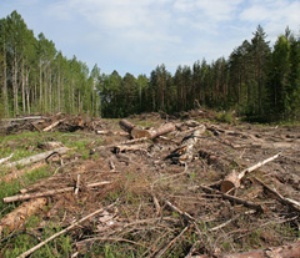
Joint letter – ICC reform and expansion risks diverting ETS Revenues from real climate action
In light of the European Commission’s ongoing considerations to amend the ETS State Aid Guidelines, revising the rules for Indirec...
News

Publish date: December 21, 2010
News
Midday Wednesday Moscow time, Yevgeniya Chirikova, head of the Defenders of Khimiki Forest Movement, telephoned the RIA Novosti news agency and said”I’m sitting at the Kitai-Gorod police station at the moment.” Kitai Gorod is a Moscow Precinct close to Red Square.
Nikolai Rubakov, executive director of the Environmental Rights Centre (ERC) Bellona, confirmed some four hours later that Chirikova had been released, though the terms of her release and whether it involved paying a fine remain unclear.
The arrest was similar to what is referred to as an administrative arrest, which would have allowed police to hold Chirikova for up to four hours and release her on a 400 rouble ($13) fine.
Earlier on Wednesday, protesters against the $8 billion Moscow-St. Petersburg highway project staged a performance near Red Square, involving a Winnie the Pooh-like bear emblazoned with the year 2012 – a reference to President Dmitry Medvedev whose surname comes from the Russian word for bear, and the 2012 presidential election – trying to fly for honey but being weighed down by issues, including corruption and lawlessness.
The planned multi-lane motorway linking Moscow to St. Petersburg was given the go-ahead last week, three months after Medvedev put it on hold amid a huge public outcry.
The announcement by Medvedev’s spokewoman, Natalya Timakova, sparked fresh outrage among Russia’s environmental community.
Russia’s leading environmentalist Alexei Yablokov, and leader of the Green Russia faction within the liberal Yabloko opposition party immediately condemned Medvedev’s decision as “political” and “dangerous to the Moscow area.”
Vladimir Slivyak, co-chair of Russia’s Ecodefence environmental organization said that the latest government statements are far from the final word on the Khimki road project.
“Khimki has become a symbol for environmental protesters in Russia and that Russian government just made a big mistake attacking this symbol,” Slivyak told Bellona Web.
“The fight is not over and resistance will only grow,” he said.
The road will cut through the mature Khimki Forest on the edge of Moscow, but protesters say the road could be re-routed without damaging the woodland.
Deputy Prime Minister Sergei Ivanov said 500 hectares of new forest will be planted to compensate for the loss, but environmentalists are doubtful of government promises.
But Yablokov scoffed at this apparent gesture of conciliation toward environmentalists.
“This is absolutely unrealistic compensation, there is simply no space for it. Where will they find these 500 hectares of territory in the Moscow area where they want to plant trees?” he said.
The Khimki Forest issue has also been a flashpoint in press rights in Russia. At least two reporters, Mikhail Beketov of Khiminskaya Pravda, an Oleg Kashin of Kommersant, have been severaly beaten for their critical coverage of the highway project.
Beketov was attacked in November 2008 and left for dead. As result of his injuries, he is unable to speak. Doctors also amptutated his right leg below the knee and several of his fingers. Kashin was beaten in November of this year in attack that was caught on a closed circuit video camera. The stomach turning footage was broadcast nationwide to public outrage.

In light of the European Commission’s ongoing considerations to amend the ETS State Aid Guidelines, revising the rules for Indirec...

Today, the European Commission published a series of Carbon Border Adjustment Mechanism(CBAM)-related documents including two legislative proposals a...

Today, the European Commission published its European Grids Package, presented as an upgrade of the EU’s energy infrastructure to lower bills and boo...

The European Commission is set to publish the the Grids Package on December 10th, the different legislative proposals and secondary legislations rela...

Today, the European Commission adopted a new Union list of energy Projects of Common Interest (PCIs) and Projects of Mutual Interest (PMIs), granting...
Get our latest news